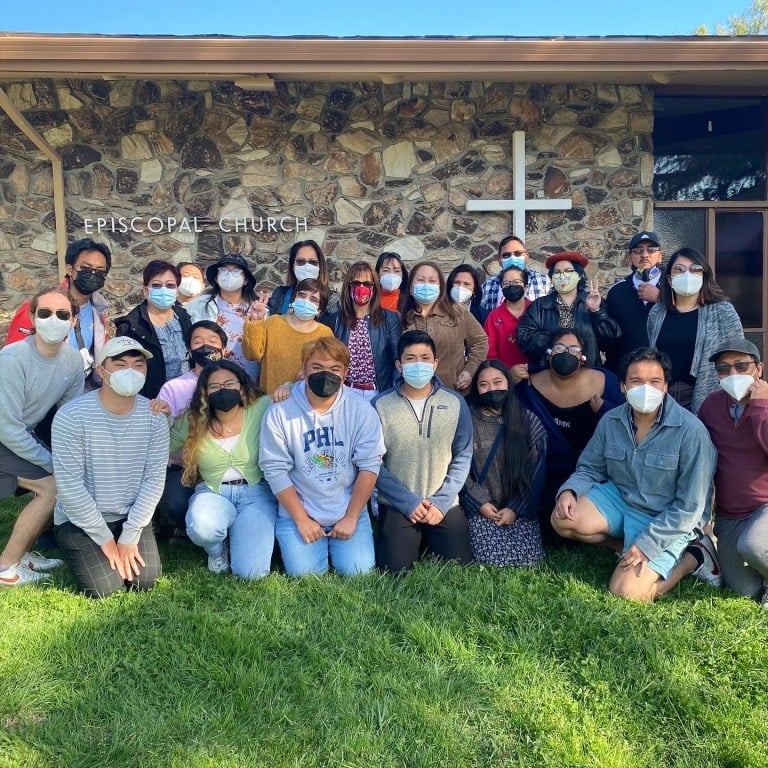Filipino students at Stanford expressed fear about the future of the Philippines following the election of Ferdinand “Bongbong” Marcos Jr. (also known as BBM), who was officially sworn into the Philippine presidency on June 30. The son] of late dictator Ferdinand Marcos Sr., BBM and his running mate Sara Duterte, the daughter of former President Rodrigo Duterte, were elected in a landslide victory.
However, the results were controversial within the Filipino community, including at Stanford. Many people raised concerns of foul play due to the election polls being “too swift,” while others were disappointed in due to the background of the two winning candidates, both of their fathers being known for extensive human rights violations.
Supporters celebrated the poll results in May, while thousands of Filipino people all over the world took to the streets and protested. Hundreds of opposing party supporters protested at the Commission on Elections (COMELEC) main office in Intramuros, Manila. Filipino activists even took to the streets of New York’s Times Square to protest against the Marcos and Duterte families, asking them to “answer for their crimes,” referencing the Marcos family dictatorship and the human rights violations of former President Duterte.
The Stanford Filipino community reacted similarly strongly to BBM-Sara’s victory. The Daily spoke with four Filipino students who shared their fears of the new administration’s potential negative effects on Philippine democracy, as well as concern over the new president’s history and political ideology.
“How can a son of a dictator crawl his way back to power?” — Filipino-American and Daily staffer Lorenzo Del Rosario ’24 said this question plagued his mind, and that the sense of incredulity and fear was shared by most members of the Filipino community.
The 2022 Pilipinx Cultural Night was held a week after the election. Del Rosario and his fellow event organizers decided to discuss the election results at the event, hoping to raise awareness of the historical atrocities under the Marcos dictatorship and acknowledge how the University’s Filipino community was emotionally affected by the results.
Collective indignation towards the election results united much of Stanford’s Filipino community. However, many Philippine-born students at Stanford felt isolated from their American-born peers.
Euclid Soringa ’25 described the days after the election as shaped by fear for their relatives and countrymen back home. Soringa was not comfortable with sharing his grief with other Filipino students. As someone born in the Philippines who personally experienced the extrajudicial killings of Rodrigo Duterte’s corrupt administration, he feared that some Filipino immigrants would fail to understand him if they were raised in a different country and did not personally experience the effects of Duterte’s administration.
“I’m not here to invalidate them. In fact, I stand with them,” Soringa said. “I’m just scared to share my grief with them with the expectation that nobody will understand me.”
Soringa, who was raised in a rural community, feared for the future of the working class. He said for many, “life will go on and we’ll flourish without the help of the government,” but that vulnerable communities like local tricycle drivers or vendors who rely on government assistance to survive would be more at threat. With rising inflation, a lowering foreign exchange rate and sugar and salt shortages, Soringa’s worries were confirmed in the months after the election.
Some Filipino students described feeling an obligation to advocate for people in the Philippines. Filipino-American Kiara Fufunan ’25 organized a rally at Stanford after the election.
“Even if I was far away, it made me feel more connected to the cause and what Filipinos back home might have felt,” Fufunan said.
Guest speakers ranging from members of political organizations, student activists and Filipino workers attended the rally, which aimed to show the power of young Filipino people and speak out against the Marcos-Duterte regime, Fufunan said. With other Filipino students, she founded a Stanford chapter of the League of Filipino Students, a student-led advocacy movement founded in 1977 during the martial law era in the Philippines. Fufunan said it was important to sustain Filipino-American activism at Stanford, especially in light of the new presidency.
Despite the grief he felt during the early days after the election, Filipino-Australian Matias Benitez ’25 said he has since accepted the election results. “I guess democracy happened,” he told The Daily, referencing BBM’s victory with 59% of the vote, more than double that of his closest rival.
“If people don’t get what they want, I just hope that they feel like they have a voice to change the future,” Benitez said, adding that he wishes the best for the Philippines and its newly elected government, hoping to see it move towards a better future.
